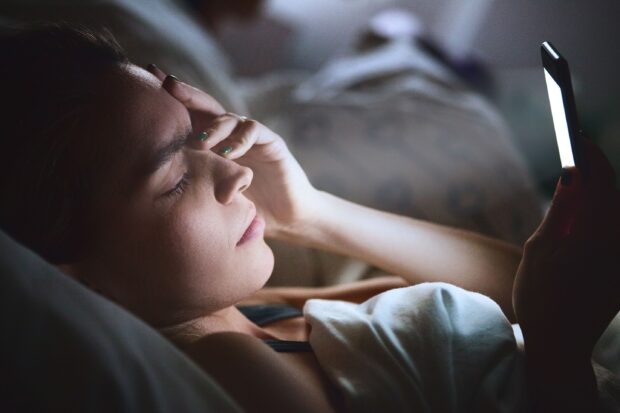Spending too long on social media could contribute to burnout

People who spend the most time on social media are more prone to burnout, and women are more affected than men, according to a European report. However, young Europeans attribute their feelings of loneliness mainly to work, rather than to social networks.
Sixty percent of Europeans have already suffered from or at least experienced temporary feelings of burnout, especially young people aged 18 to 34, reports the “2024 STADA Health Report.” The research, carried out among 46,000 respondents in 23 countries, highlights the role of social networks in this phenomenon.
The report points out that younger people are more affected by burnout, despite having spent less time in the world of work and study. Some 69% of 18-34 year-olds report being familiar with burnout.
Social networks play a key role in mental exhaustion, the report says. People who spend the most time on social media are more likely to suffer burnout (68% vs. 53%). Women are also more affected than men (65% vs. 54%).
They are also more critical of their own physical appearance: 51% think they are overweight, and 38% constantly compare themselves to people on social networks. In contrast, men pay less attention to their weight, with “only” 28% attaching importance to this, and 21% feeling social pressure.
The feeling of loneliness also goes hand in hand with high use of social networks. Among Europeans, 63% of 18-35 year-olds say they feel lonely, compared to 41% of those aged 55 and over. According to the report, social media plays a key role in this feeling. The majority of users claiming to spend a lot of time (64%) or a fair amount of time (53%) online are more prone to feelings of loneliness than other users with less screen time, at 44% versus 26%.
The situation is especially concerning among the under-34s, 41% of whom are more likely to spend long hours on screens, compared to the 35-54 age group (22%) and the over-55s (13%).
Yet only 20% of young Europeans explain their feeling of increased loneliness by their excessive use of social networks or video games. For the latter, work weighs more heavily in the balance. Twenty-seven percent of young Europeans attribute this negative feeling to their work, 15% to remote working and childcare responsibilities, 14% to the loss of a loved one, and 14% to relocation for professional reasons.
Women (57%) feel lonelier than men (46%). A higher proportion of women (16%) than men (8%) explain this situation as being due to childcare responsibilities.